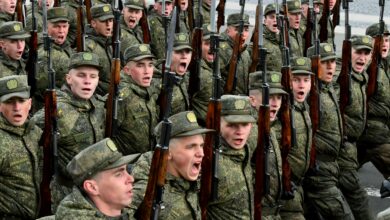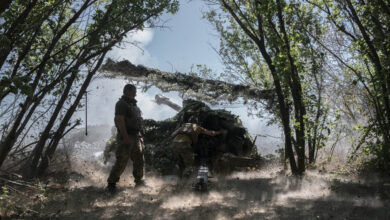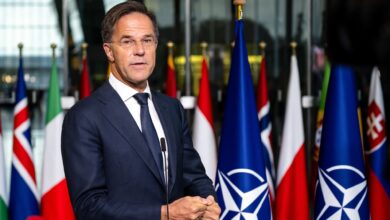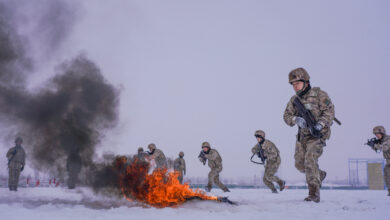NATO Secretary General Jens Stoltenberg said on Wednesday that the alliance expects to agree on providing Ukraine with protective equipment against Russian chemical, biological, or nuclear attacks.
Speaking on the eve of a NATO summit in Brussels, Stoltenberg said that Russia’s “false claims” that Ukraine is producing and preparing chemical weapons for use could be a pretext to use such weapons.
Russian Pretext to Use Chemicals
“Russia has used chemical agents before against their own opposition and also on NATO Allied territory in Salisbury. And Russia was, of course, part of the use of chemical weapons in Syria,” the NATO chief said in response to a question.
“So we are concerned and that’s also the reason why we are ready and we’ll address tomorrow ways to provide support to Ukraine to protect themselves against the use of chemical weapons.”
Chemical weapons
"accusing others while actually planning to do the same"…….
This what they mean with that psychological term "projection"? pic.twitter.com/I66ANZHPTS
— Romano (@RNR_0) March 24, 2022
Refrained From Calling it Crossing ‘Red Line’
Stoltenberg said that any use of chemical weapons would “totally change the nature of the conflict” and have “far-reaching consequences,” without answering whether their use would amount to crossing a “red line,” necessitating the direct involvement of the alliance.
“I expect leaders will agree to strengthen NATO’s posture in all domains, with major increases in the eastern part of the alliance – on land, in the air, and at sea,” Stoltenberg added.
On the question of Russia’s warning of nuclear retaliation if the alliance directly enters the war, he warned Moscow to cease “nuclear saber rattling.”
Nuclear deployment would “fundamentally change the nature of the conflict, and Russia must understand that a nuclear war should never [be] fought and they can never win a nuclear war,” he said.
Additional Battlegroups
Stoltenberg further explained that NATO could announce the deployment of four additional battlegroups in Bulgaria, Hungary, Romania, and Slovakia to strengthen the eastern flank of the alliance.
The alliance already has four battlegroups in the three Baltic countries and Poland.
Stoltenberg said that NATO has doubled troop numbers on its eastern front to 40,000 during the past few weeks. The alliance has also reportedly put approximately 140 warships at sea and 130 aircraft on high alert during the crisis.
“So in addition to what we have already done, I also expect Allied leaders tomorrow to agree to a task to our military commanders to look into the longer-term consequences for our deterrence and defense. There is a need to reset our deterrence and defense, and I expect that to be a substantial increase in our presence for the long term.“












